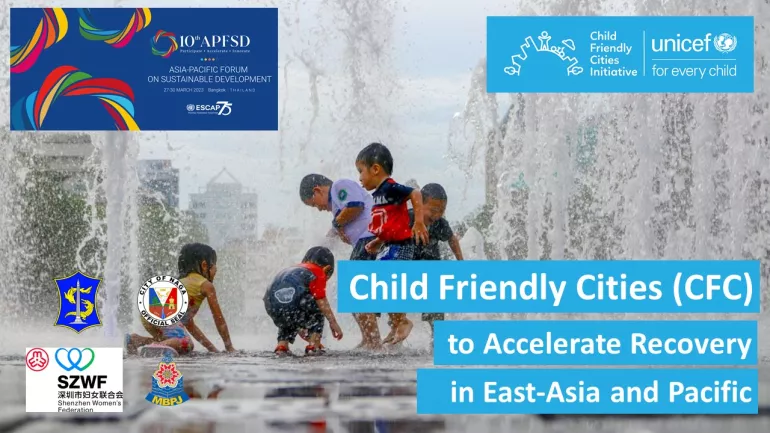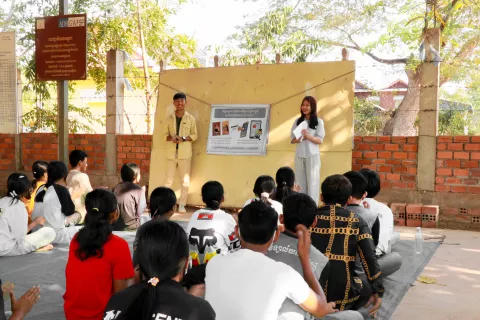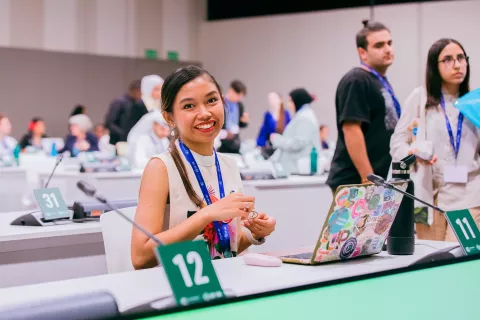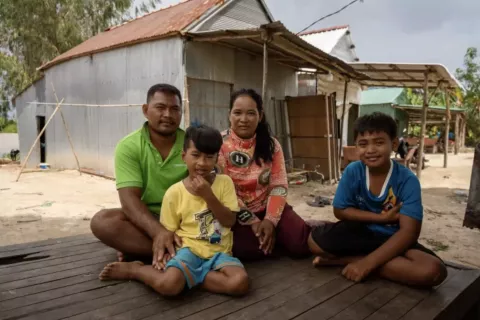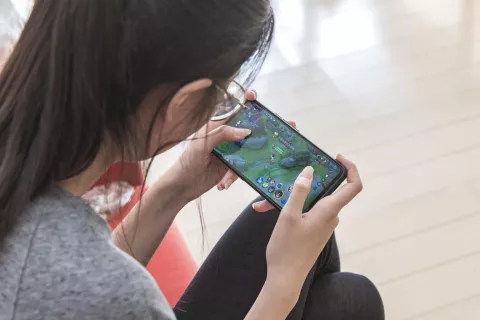Children, mayors and government officers from five East Asian countries - China, Indonesia, Malaysia, Philippines and Viet Nam - actively participated in an intergenerational dialogue aimed at creating cities safer and more sustainable for children during an UNICEF event titled ‘Child Friendly Cities to Accelerate Recovery in East-Asia and the Pacific: An Intergenerational Dialogue’.
The event provided a platform for children in the region to directly engage with city mayors and government officials. Children had the opportunity to share their vision of child-friendly cities, pose direct and bold questions to policy makers, and respond to important inquiries from their adult counterparts.
This event was organized by UNICEF’s East Asia and Pacific Regional Office during the Tenth Asia-Pacific Forum on Sustainable Development with cities and local governments as part of UNICEF's Child Friendly Cities East Asia and Pacific Regional Network and was attended by over 150 participants.
As stated by Mr. Myo-Zin Nyunt, Deputy Regional Director of UNICEF East Asia and Pacific Regional Office, UNICEF is committed to work with central and local governments to promote Child Friendly Cities and accelerate progress towards the Sustainable Development Goals (SDG), particularly on Goal 11 on Sustainable Cities and Communities.
Children and government officers recognized the importance to maximize the potential of urban development in the region, and at the same time minimize the risks. Rapid rates of urbanization in East Asia are offering new opportunities while also exacerbating children’s vulnerabilities, posing new health risks and challenging the delivery of adequate infrastructure and basic services. These challenges have been aggravated by the recent COVID-19 pandemic. For the first time, urban children are the largest group of new poor children. Hence, it is increasingly important to ensure that cities are designed and managed in a way that meets the needs of all residents, especially children.
During the dialogue, children shared their vision of child friendly cities as places where children can participate, feel safe, protected, and respected. Places where children are ‘free to speak up their mind’, have healthy food and healthy lifestyles. Cities where children can move around and are free from violence and abuse.
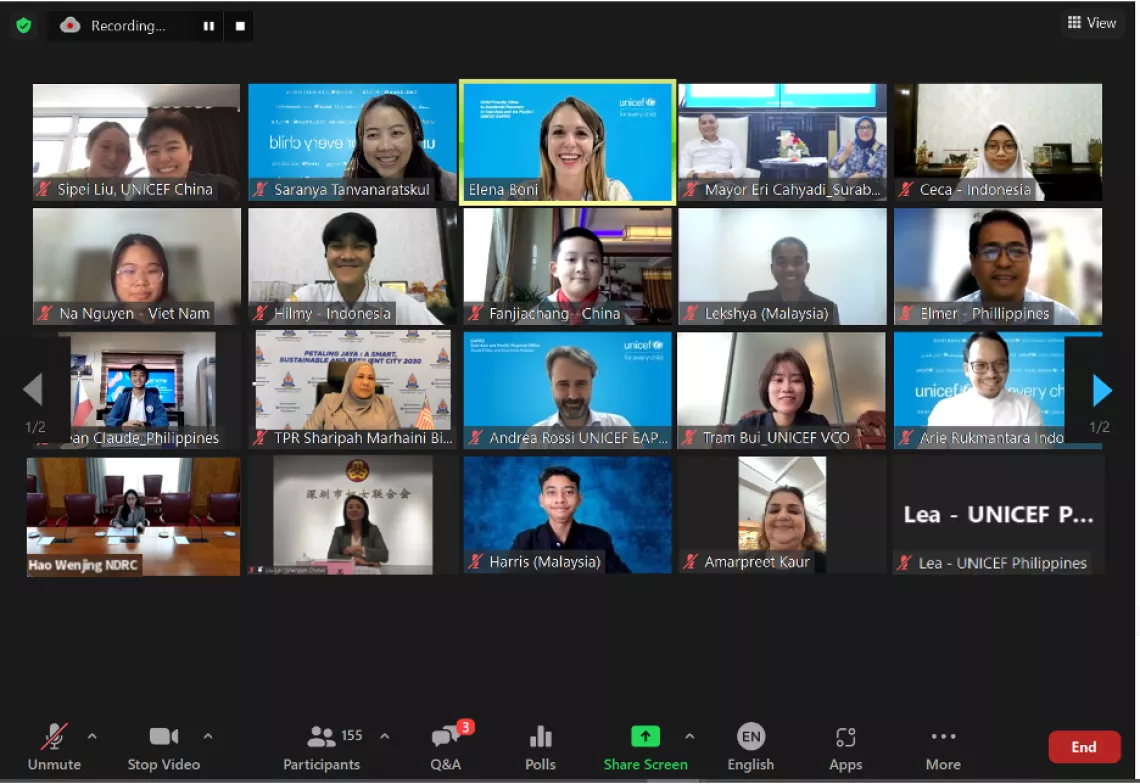
As highlighted by Jean Claude, child representative from the Philippines, in the past three years, the pandemic and the intermittent lockdowns have magnified children’s issues in the fields of education, mental health, and child protection by restricting children to play and interact with one another.
During the dialogue, both children and adults emphasized the importance of inclusive and meaningful engagement with children and the need to incorporate their perspectives into the city’s planning and development.
Child participation can help children to understand their roles, responsibilities, and decision-making skills. - Leksya, (17) child representative from Malaysia
Alongside participation, the importance of mental and physical health support for children and adolescents, the integration of technology in learning environments, and child safety emerged as focal areas to make cities more child friendly. Moreover, the need to improve access to and learn from nature in cities, and increasing opportunities for outdoor recreation and cultural activities were described by children as a pressing need to promote the well-being of children and youth after the pandemic.
During Covid, we have lost contact with nature. Today, we need cleaner air and more time to observe and embrace nature. - Fan (10), child representative from China
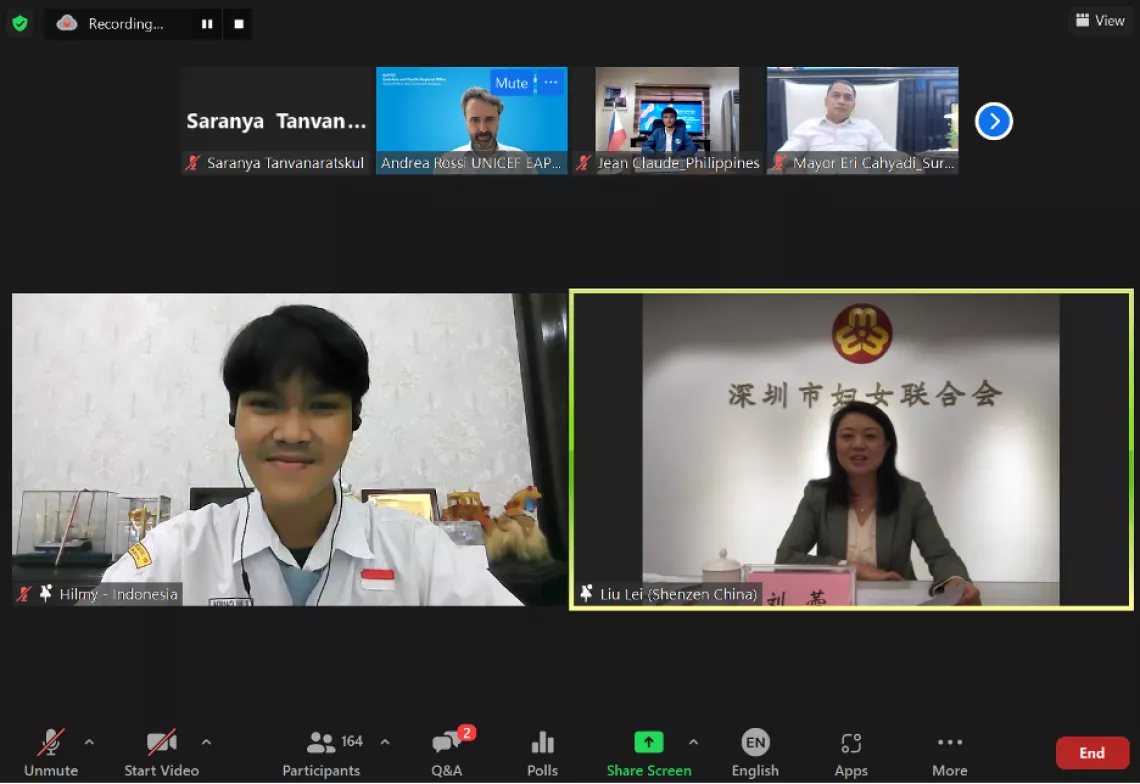
Local governments agreed that Child Friendly Cities is not a list of small interventions, or a set of minimum standards. It is based on the achievement of solid results in the improvement of the wellbeing of children, done for children and with their participation.
UNICEF will continue to work with local governments and promote south-south cooperation among the countries that are part of UNICEF's Child Friendly Cities East Asia and Pacific Regional Network.
As concluded by Mr. Andrea Rossi, - Regional Advisor Social Policy and Economic Analysis of UNICEF East Asia and Pacific Regional Office, events like this show the power of collaboration across generations and its potential for fostering a more inclusive and sustainable urban future for all children, because a city fit for children is a city fit for everybody.
Speakers included:
- Mr. Andrea Rossi, Regional Advisor Social Policy and Economic Analysis UNICEF EAPRO
- Ms. Hao Wenjing, First-level Principal Staff Member of the National Development and Reform Commission of the People’s Republic of China
- Ms. TPr Sharipah Marhaini Binti Syed Ali, Deputy Mayor of Petaling Jaya City Council, Malaysia
- Ms. Liu Lei, President of the Women’s Federation of Shenzhen, China
- Mr. Eri Cahyadi, S.T., M.T, Surabaya's City Mayor, Indonesia
- Mr. Elmer Baldemoro, Councilor of City Government of Naga, Philippines
Children/Youth participants:
- Ceca and Hilmy from Surabaya Children Forum, Indonesia
- Lekshya and Harris from Petaling Jaya Child Council, Malaysia
- Na from Le Quy Don High School, Da Nang, Viet Nam
- Jean Claude from the Regional Committee for the Welfare of Children, Region 4, Philippines
- Fan from the child-friendly pilot town of Changsha, China
The event was moderated by Ms. Elena Boni, Child Friendly Cities Coordinator, UNICEF East Asia and Pacific.


